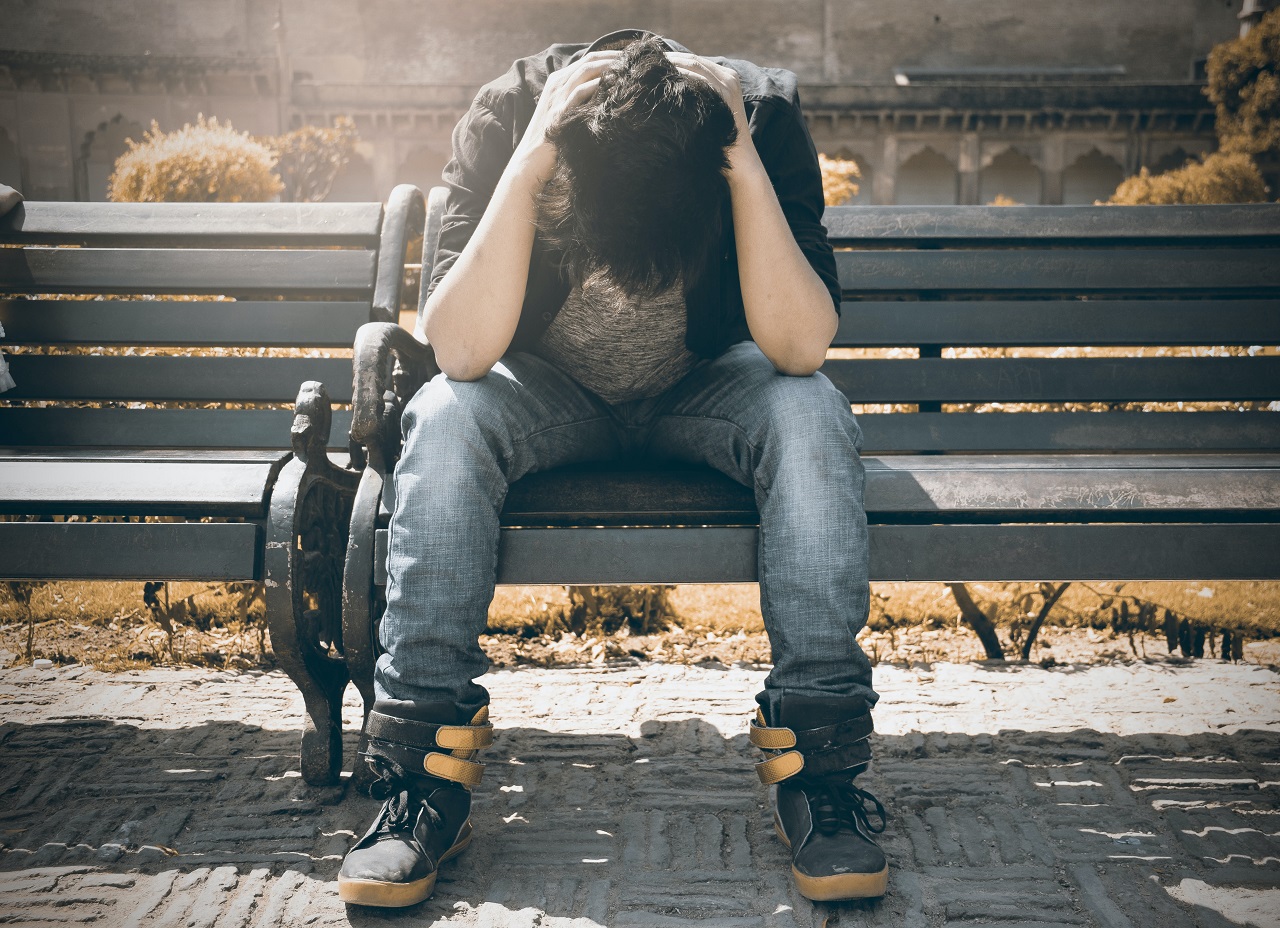How to get undepressed? Depression is one of the most common mental health disorders in the United States. It is also very treatable with medications and psychotherapy, but how can you know if your depression isn’t just a case of “the blues?” How do you know when it’s time for a professional intervention? This article discusses how to identify depressive symptoms, seek treatment without shame or guilt, and find ways to help you feel better.
1. Take a Vacation
People who take vacations are less likely to be depressed than people who do not, according to an article in the “British Medical Journal.” This is true regardless of one’s income or social status. Life satisfaction also tends to increase when people go on vacation, with benefits lasting about a month afterward.
2. Exercise
Exercise helps increase self-esteem, reduce stress, and strengthen your body, which ultimately reduces the risk of depression. People who exercise are less likely than others to become depressed. Exercise has also been shown to be just as effective for treating mild depression as antidepressant medication.
3. Meditate

People who meditate cultivate an attitude of acceptance and relaxation, which can help prevent depression. One study found that meditation was as effective as antidepressants in reducing symptoms of depression, although more research is needed to determine exactly how effective meditation is.
4. Engage in a Hobby
According to an article published in ” Psychology Today, “people who regularly engage in hobbies tend to be more mentally healthy than people with interests that they do not pursue, according to an article published in “Psychology Today.” Hobbies allow you to learn new skills and experience personal successes, which can help increase self-esteem and prevent depression.
5. Learn to Relax
Learning how to relax your mind and body helps prevent depression. Techniques such as deep breathing, meditation, progressive muscle relaxation, yoga, visualization, and biofeedback can help you reduce stress. Engaging in these techniques regularly can help you feel more relaxed and handle stressful situations better.
6. Eat Well
Eating a healthy diet is important because it will provide your body with the nutrients needed for optimal physical health and because it can improve your mental health. Eating well helps reduce stress, which can reduce the risk of depression.
7. Get Enough Sleep
Getting enough sleep is important not only for maintaining optimal physical health but also for preventing depression. People who are deprived of sleep are more likely to become depressed than people who get a good night’s rest. Sleeping well improves self-image, self-esteem, and outlook on life, increasing your ability to handle stress.
8. Avoid Drugs and Alcohol

Excessive drug and alcohol use can lead to problems with mental health. Substance abuse is associated with several other risk factors for depression, such as low socioeconomic status, lack of social support, traumatic experiences, family history of depression, and personality traits, such as neuroticism.
9. Seek Support from Family and Friends
Having a supportive social network can help protect you against depression. If you experience problems, having someone you can lean on for support is invaluable. A strong social network helps increase self-esteem, improve coping skills, and strengthen your mental defenses.
10. Find Meaning in Life
Having a sense of meaning in life can protect you against depression. People who derive meaning from their lives tend to be happier than those who do not. You can find personal meaning by performing altruistic acts, appreciating the good already present in the world, and following your life’s passions.
11. Get a Hobby
People who regularly participate in their hobbies tend to be less depressed than people who do not participate in any productive activities. Hobbies provide an escape from negative thinking, offer opportunities for personal growth, and allow you to build self-esteem.
12. Perform Random Acts of Kindness
Performing charitable acts can improve your mental health. There are numerous benefits to performing good deeds, such as improving self-image and knowing that you are making a positive impact on society. By developing an appreciation for what you have, you will be less likely to fall into a depressed state.
13. Face Problems Head-on
People who attempt to avoid dealing with stress or certain emotions are more vulnerable to depression. Attempting to avoid problems, such as going on vacation when you feel stressed out, can lead to feelings of loneliness and a lack of motivation in your daily life, increasing the likelihood that you will become depressed. Instead, you can strengthen your coping skills and build self-confidence by facing problems head-on and not avoiding them.
14. Avoid Self-Judgment

People who constantly criticize themselves are more likely to become depressed than people who do not. By learning to accept your shortcomings, you can reduce stress and improve self-esteem.
15. Spend Time in Nature
Spending time in natural settings is good for mental health. Being outside makes you feel more relaxed and better appreciate nature. Spending time in green spaces has numerous benefits, including reducing blood pressure and stress levels.
16. Live in the Moment
People who worry about the future or dwell on their past mistakes can become depressed. While it is important to plan for the future, you should also live in the present moment.
17. Read a Book or Other Work of Literature that Inspires You
Having a positive attitude towards literature can improve your mood. Reading a great work of literature has numerous benefits, such as increasing knowledge and improving writing skills.
18. Smile!
Smiling is good for mental health. Smiling can make you feel more positive and relaxed while making other people feel more positive about you.
19. Laugh!
Laughing is good for mental health. Laughter reduces stress, increases the production of painkilling hormones, and stimulates your immune system.
20. Sing!

Singing has numerous benefits for mental health. It can give you a sense of pleasure and well-being, relieve stress, and strengthen your immune system. Singing can also help you express emotions that might otherwise be hard for you to deal with.
21. Do Something Creative!
Doing creative things is good for mental health. It allows you to express yourself and gives you the satisfaction of having created something with your own two hands. It is also thought that creative endeavors stimulate brain development, promoting mental health.
22. Meditate!
Meditating has numerous mental health benefits. There are many different types of popular meditation techniques, including mindfulness meditation, which focuses on your thoughts and feelings in the present moment. Not only does meditation lower stress levels, but it also increases self-awareness, improves well-being, and increases feelings of calmness.
23. Do Yoga!
Doing yoga has numerous mental health benefits. Many different types of yoga exist, including Vinyasa Yoga, which entails flowing through poses, and Hatha Yoga, which is the practice of holding postures for a prolonged amount of time. Studies have shown that yoga can be beneficial for people with depression because it relieves stress, increases feelings of relaxation, reduces symptoms associated with anxiety disorders, decreases pain levels, and helps to control weight.
24. Treat Yourself to a Nice Meal
Treating yourself to a nice meal is good for mental health. It can improve your mood and give you a sense of pleasure in the present moment. Eating great food in beautiful surroundings has numerous benefits, including reducing stress levels, improving digestion, and making you feel more relaxed.
25. Spend Time with Positive People
Being around positive people is good for mental health. It can make you feel more excited, hopeful, and motivated about life, all of which are great for reducing stress levels. Spending time with other happy individuals will also make you feel more optimistic, better able to cope with problems, and less likely to feel depressed.
26. Get Outside in the Sunlight

Getting outside into the sunlight is good for mental health. It can give you a sense of pleasure and well-being, stimulate your immune system, improve mood, reduce stress levels, enhance self-esteem, promote healthy sleep patterns, and reduce the symptoms of depression. It is thought that sunlight may also improve your mood by increasing your vitamin D levels, although more research needs to be done on this topic to establish conclusive findings.
27. Turn up the Music
Listening to upbeat music can be good for mental health. It can help you feel more joyful instantly, reduce stress levels, bring back positive memories, increase self-esteem, and give you a feeling of control. Music has proved beneficial for people with depression because it gives them something to focus on other than their illness.
28. Sit Outside in the Green Grass
Spending time sitting outside in the green grass is good for mental health. There are many different benefits of being outside in nature, including developing feelings of awe and conceitedness. Spending time with nature can also help you relax, feel calm, reduce stress levels, improve self-esteem, become more aware of your surroundings, and promote a healthy immune system.
29. Read a New Book
Reading a new book is good for mental health. It can improve your mood, give you a sense of pleasure and achievement, stimulate your creativity, and help you to feel more inspired. Reading has been found to reduce stress levels by up to 68% and increase self-esteem, empathy levels, and feelings of relaxation.
30. Give Someone a Helping Hand
Helping other people is good for mental health. It can give you a sense of purpose in life, make you feel fulfilled, increase self-confidence, improve your mood, reduce stress levels, and provide opportunities to socialize. It is currently unknown exactly why giving to other people can help alleviate depression, but it is thought that helping others distracts from negative thoughts and feelings.
31. Aim Low
Aiming for small wins rather than grand milestones can be good for mental health. If you aim too high in life, you risk having large amounts of failure, leading to stress and depression. By aiming low, you can ensure that you achieve a sense of accomplishment regularly, which will help you to feel energized and motivated in life.
32. Make a List of All the Good Things in Life
Making a list of all the good things in life is good for your mental health. It can give you a sense of perspective, increase optimism and hope, motivate you to achieve your goals, and decrease stress levels. It also helps people feel more grateful for their lives and the things they have been given. On top of that, keeping a positive list on hand can help you to feel more prepared and equipped to fight depression when it arrives.
33. Do Something You Love
Doing something that you love is good for mental health. It can give you a sense of purpose, improve your mood, increase your chances of success in life, improve your self-esteem, motivate you to push forward, and reduce stress levels. On top of that, it can help you to connect with your true self and create new meaning in life. It is important not to spend too much time on negative things, as this will have the opposite effect.
34. Set Smaller Goals
By setting smaller goals rather than larger ones, you can be good for your mental health. When you have larger goals, you are less likely to achieve them, which can cause stress and depression. However, by setting smaller goals daily or weekly, you can ensure that you achieve success on a more regular basis, which will help you feel energized and motivated in life.
35. Get Professional Help
Getting help from a professional is good for mental health. It can improve your mood, increase your self-esteem, give you a sense of hope and control over life, and reduce stress levels. If you suffer from severe depression, it may be necessary to visit a therapist or psychiatrist. However, there are also many self-help strategies you can use on your own.
Conclusion
How To Get Undepressed? Depression is a state of sadness that can affect anyone at any time. Some people are more likely to suffer from depression than others, but it doesn’t discriminate between gender, age, or social status. Depression has many symptoms and causes, but there are ways to help yourself overcome the symptoms and fight back against depression.



